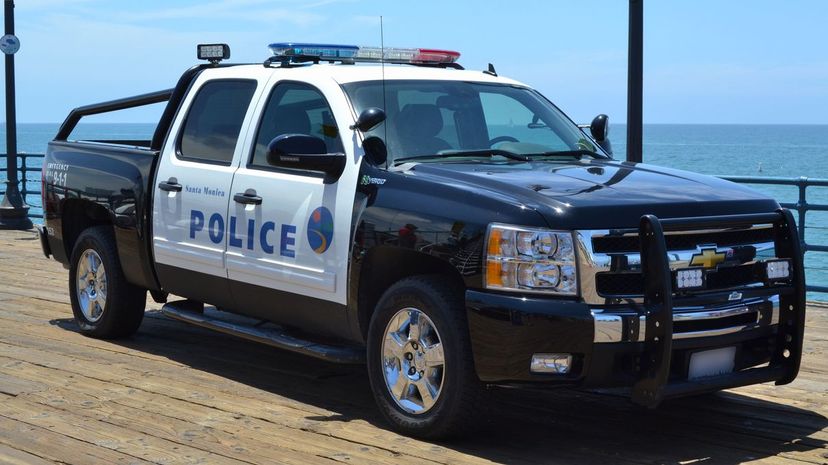
About This Quiz
If you're in trouble, their lights are a great relief. If you see their lights in your rearview mirror as you cruise through a stop sign, however, they're not a welcome sight. Every police and law enforcement agency needs to get around to do its job and to track down drivers who break the rules of the road. For this quiz, we've assembled 40 of the finest cars to serve in a law enforcement capacity - think you can name them all?
The first police "car" was actually a wagon run by electricity in Akron, Ohio in 1899. Since then, police cars have become an indispensable part of every police department. Because of the differing needs, major law enforcement divisions have various vehicles, each tailored to fit a certain task.
Most police units are clearly marked to let others on the road know that they are official law enforcement vehicles, complete with lights and sirens that are needed to move through traffic quickly and safely. Then, there are the undercover cars that look for traffic infractions and are quick to pounce; they also have lights and sirens, but otherwise are indistinguishable from other vehicles.
So, think you know what a "police car" looks like? Well, these vehicles take many shapes and sizes. Hit the lights and siren and let's find out how much you really know about police vehicles!
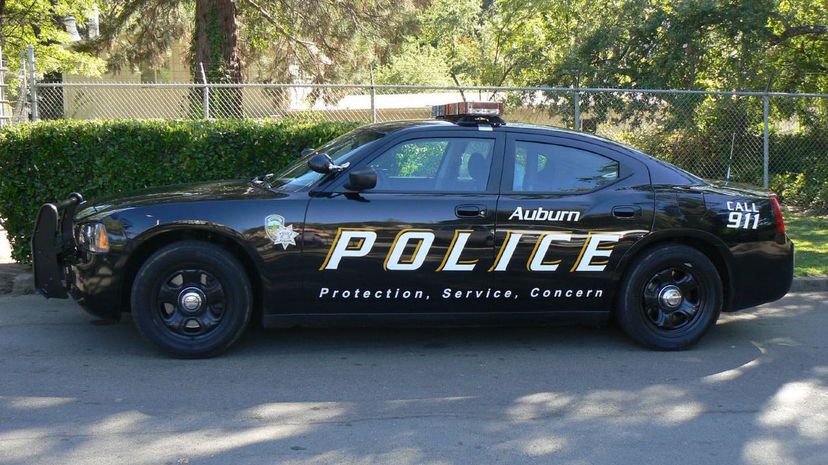
When Dodge reinvented the Charger in 2005, many police departments hoped they wouldn't have to wait long for a variant marketed just for them - and they didn't. In 2006, the Police Package for the Charger was made available, with plenty of HEMI muscle to power the rear-wheel-drive car. Today, the Charger can go from 0 to 60 in 5.3 seconds, giving police enough power to chase down almost any bad guy.
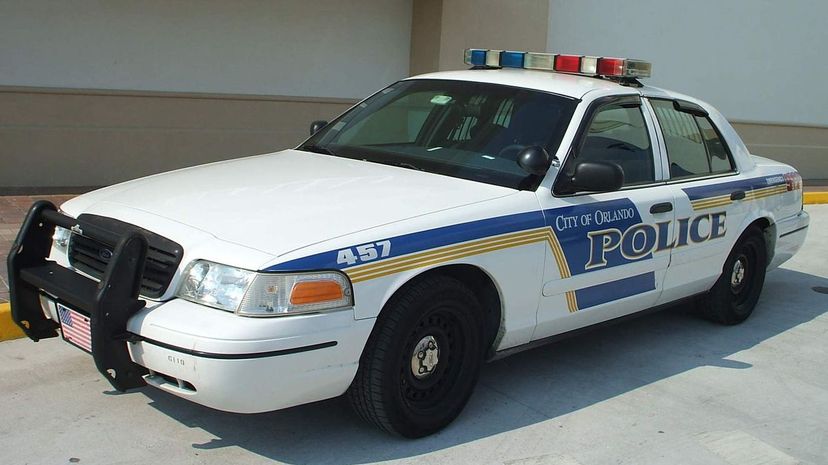
The Ford Crown Victoria was a favorite of many police departments and law enforcement agencies during its run. From 1998 through 2011, Ford created a version of this vehicle known as the Police Interceptor. Prior to that, the law-enforcement model was known as the Crown Victoria P71.
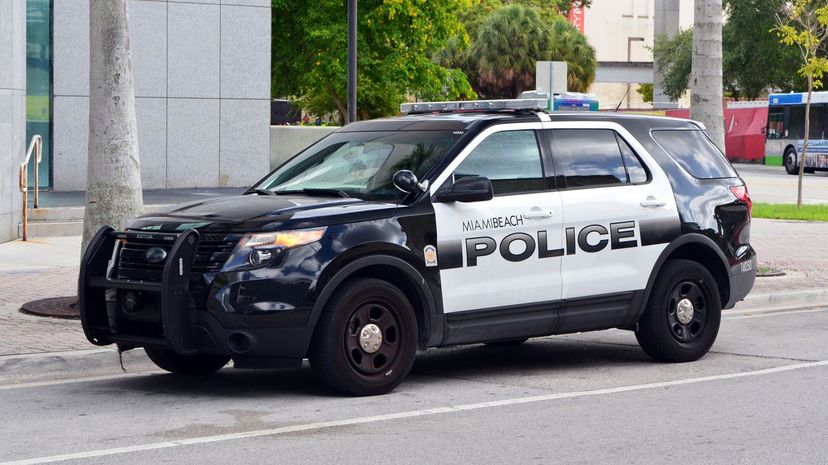
The most popular police vehicle in the United States is actually a variant of the Ford Explorer: the Ford Police Interceptor Utility. For the 2020 model year, Ford released a new generation of this vehicle, based on the sixth-generation Explorer, which offers a hybrid version with an electric motor and a 3.3-liter V6.
Advertisement
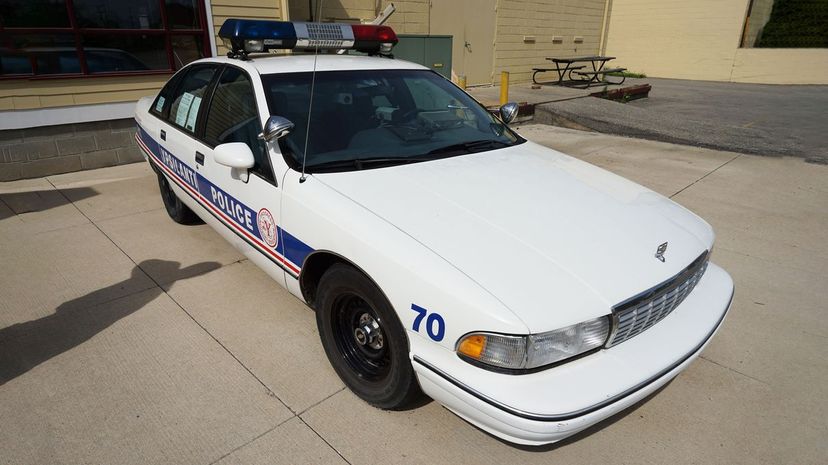
The Chevrolet Caprice was a favorite of many law enforcement agencies because it was both powerful and cheaper to operate. With a version of the powerful LT1 V8 Corvette engine, the Caprice had 260 horses under the hood and enough torque to get off the line and into pursuit quickly.
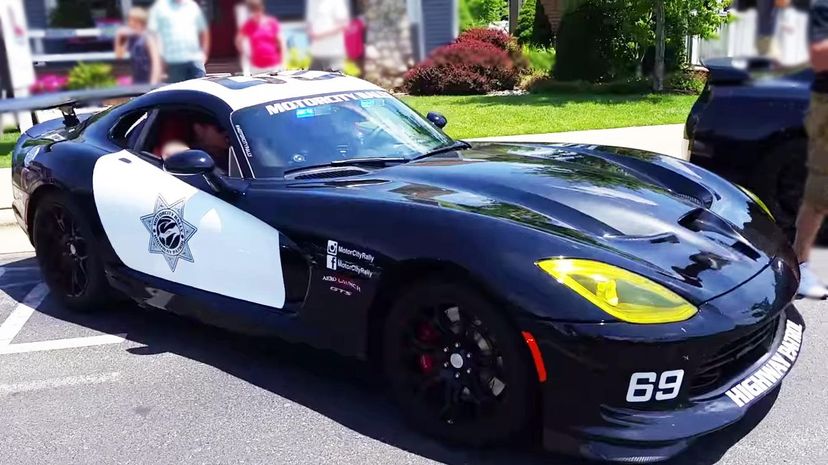
Pulled over for doing 127 mph in a 35 mph after a chase, a driver in Illinois had his 2000 Dodge Viper turned over to the Plainfield Police Department, which gave it a black-and-white makeover, fitted it with lights and a siren and turned it into the department's D.A.R.E. unit for use at community events.
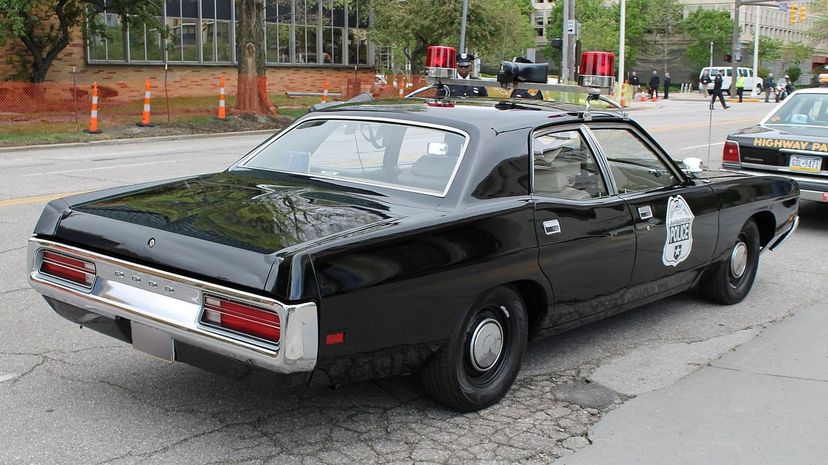
The Ford Galaxie, produced between 1958 and 1974 in the United States, was a popular full-size car in its day that was both powerful (a 7.0-liter engine was available throughout its three-generation run) and versatile. Fans of classic television would recognize it as the Mayberry squad car from "The Andy Griffith Show" (it also didn't hurt that the Ford Motor Company was a sponsor of the show).
Advertisement
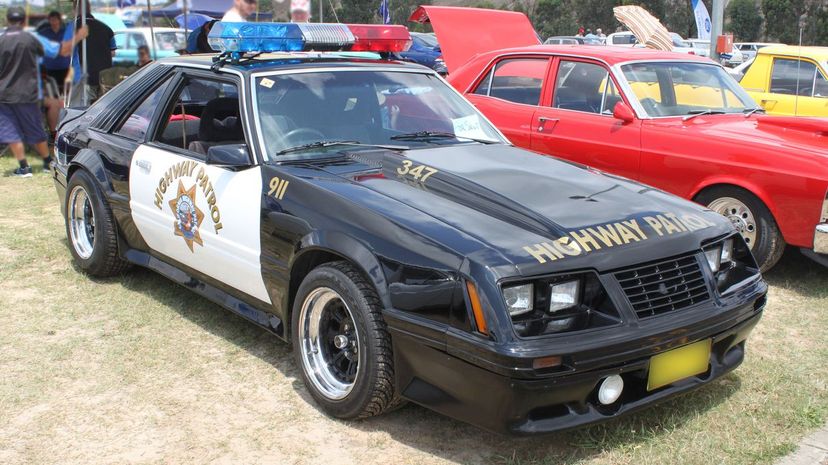
The California Highway Patrol needed a high-powered car that could hunt down speeders and chase fugitives, so in 1982 Ford came with the CHP Mustang, which was a Mustang GT with the more conservative notchback body style. The project was a success, so the next year Ford offered the Special Service Package Mustang.
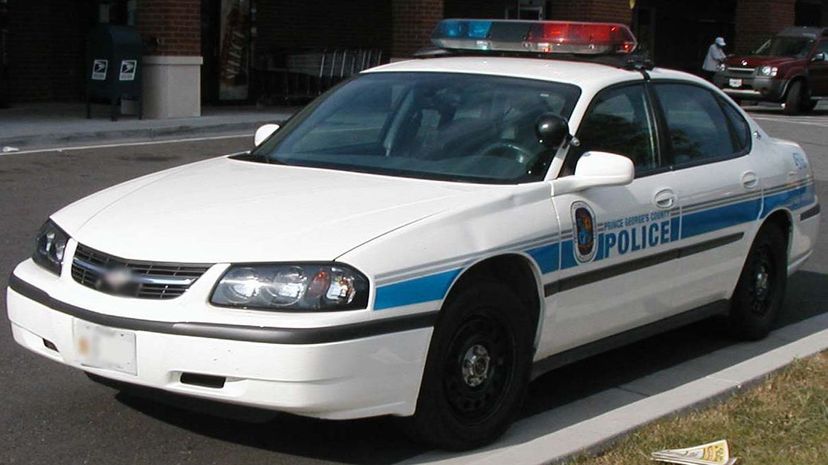
Built from 1958 to 2020, the Chevrolet Impala has been one of its maker's best-selling vehicles for much of its long production run. Special models created for law enforcement needs were created along the way, starting in 1977 and continuing through the end of its cycle.
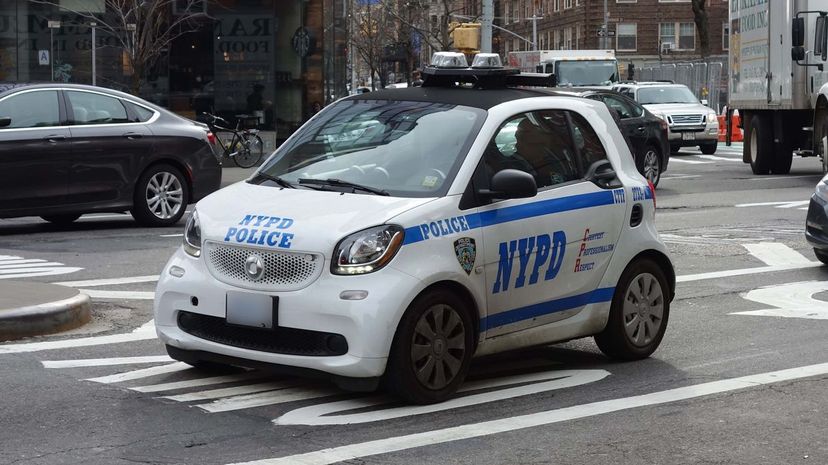
It would be difficult to haul a criminal to justice in one of these cars, but that's not what they were intended for. The New York Police Department has hundreds of Smart Fortwo vehicles for police who write tickets and other non-aggressive needs. They are efficient, if not particularly muscular.
Advertisement
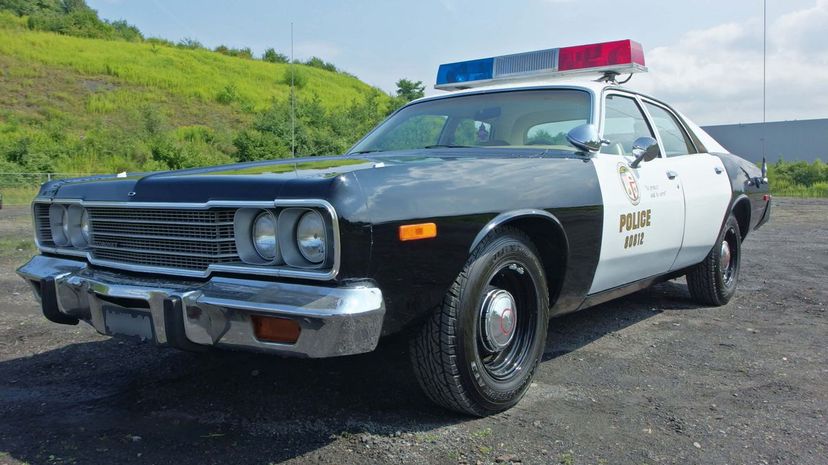
The "Super Bee" variant of the Dodge Coronet in 1970 had a dual oval grill that looked as if the car had an angry "facial" expression that didn't add anything to the vehicle's performance but was probably effective on a psychological level. What it DID have was a powerful 7.2-liter V8 engine to chase down law breakers.
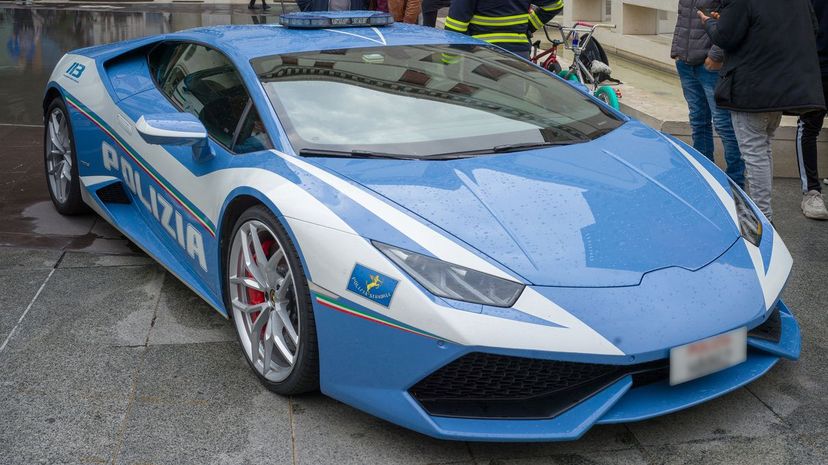
The Lamborghini Huracán Polizia - the police variant of the Huracán - was introduced into the Italian Highway Patrol fleet in 2015, with another added in 2017. The supercar not only hunts down speeders but also is used to deliver organs and blood to hospitals when time is of the essence.
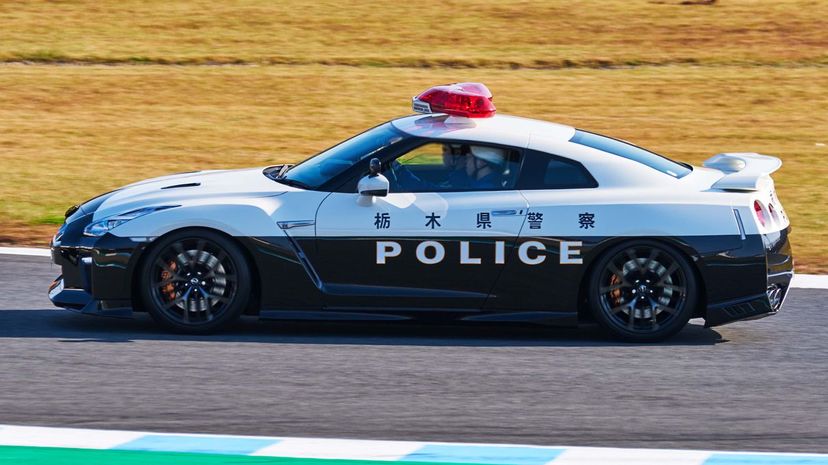
Donated by an area resident in 2018, the police department of Japan's Tochigi Prefecture received a Nissan GT-R capable of producing an incredible 565 horsepower and going from 0 to 60 mph in only 2.7 seconds. This supercar will make short work of high-speed chases.
Advertisement
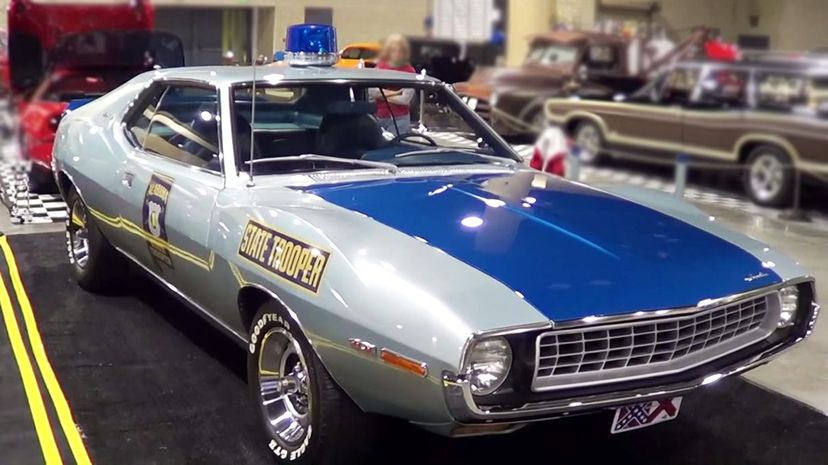
The American Motors Corporation released the Javelin in 1967 and, in its most aggressive configuration in the first generation, offered a 6.4-liter V8 that produced 325 horsepower. When the Alabama Highway Patrol needed a lower-priced vehicle than traditional cruisers, it looked at the Javelin, and in 1971 put second-generation Javelins on the highway as pursuit and high-speed response vehicles. They were on the AHP's force until 1979.
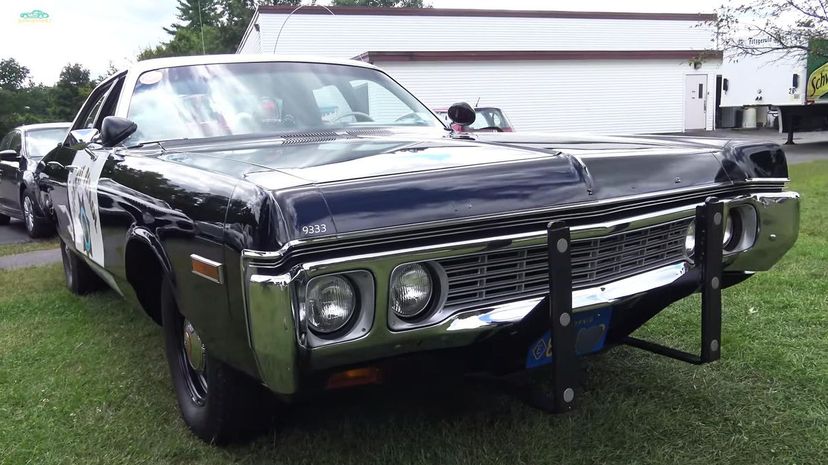
The Dodge Polara was made from 1959 through 1973, offering police variants for much of that run. In 1969, the Dodge Polara Pursuit, with its 7.2-liter Magnum V8 engine, set a top speed record of 147 mph - a record for any Chrysler police car on the line, and one that lasted for decades.
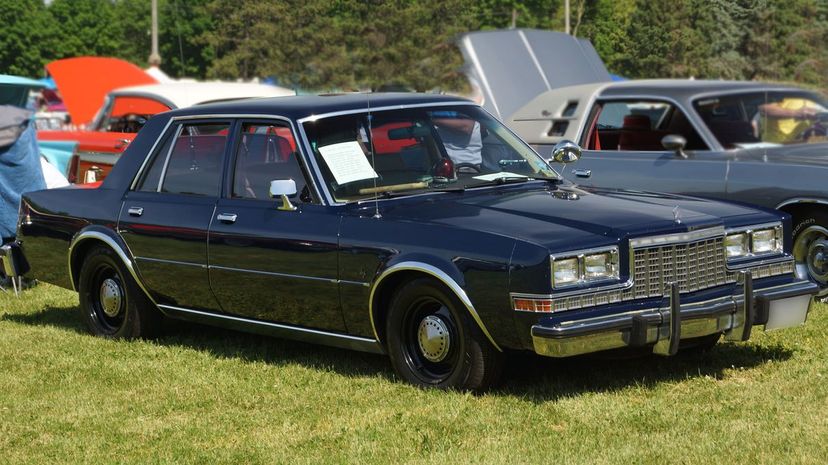
The Dodge Diplomat was a mid-sized car that was made from 1977 through 1989, taking the place of the Dart in the automaker's lineup. The car became a favorite of law enforcement divisions, even after the public's attention had found other cars to buy; in the later 1980s cars with the Police Package made up about half the Diplomat's sales.
Advertisement
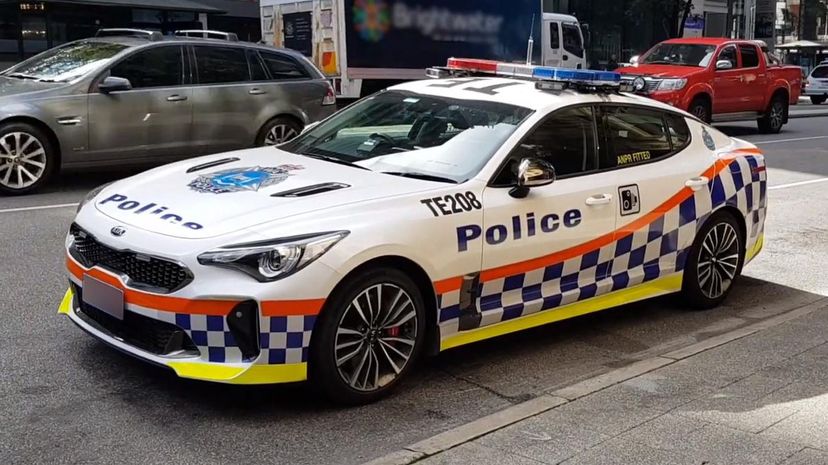
The state of Queensland, Australia had a police car fleet made up of Holden Commodores and Ford Falcons, both of which have been discontinued. So, the government has started replacing cars in the fleet with Kia Stingers, planning on ultimately buying 200 of them for police use. The cars have twin-turbo V6 engines that can produce 365 horsepower and can go from 0 to 60 mph in 4.7 seconds.
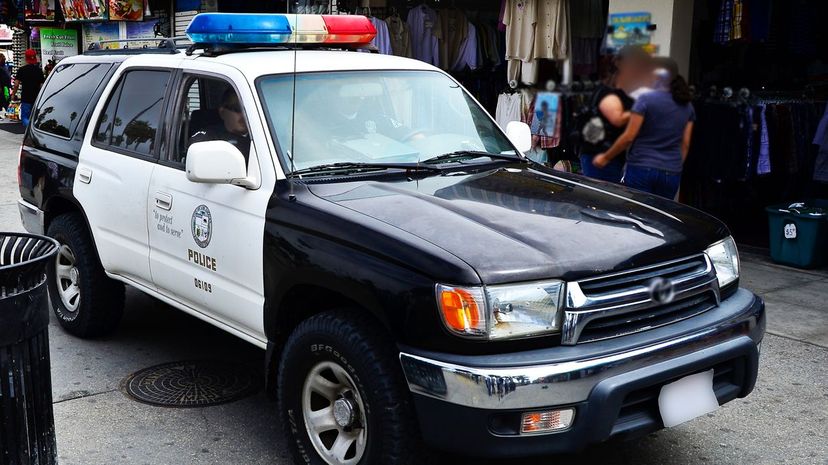
A mid-sized sport utility vehicle, the Toyota 4Runner might not be the first vehicle you might think of when it comes to law enforcement, but the vehicle has proved useful for officers who patrol the city's beach areas. The 4Runner first hit streets in 1983 and is still being used today.
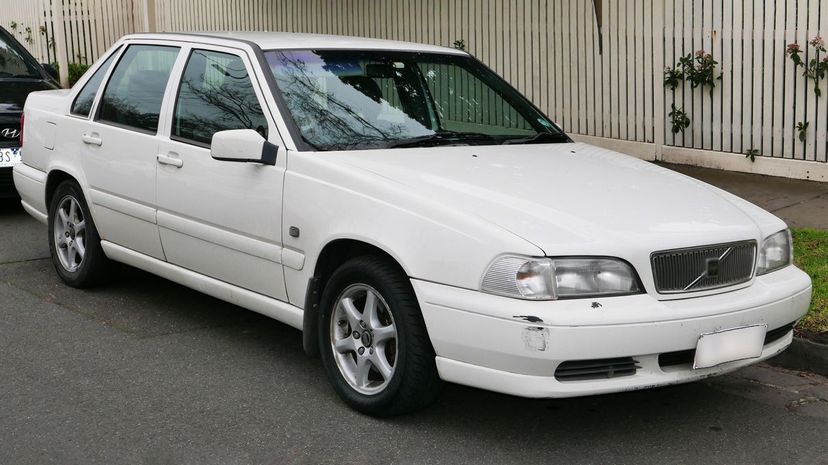
The Volvo S70 was only in production from 1996 through 2000, but since specialized versions were made available as police variants, many departments gave the car a try, including some British forces and the California Highway Patrol. The S70 was followed by the S60, which is still in production today.
Advertisement
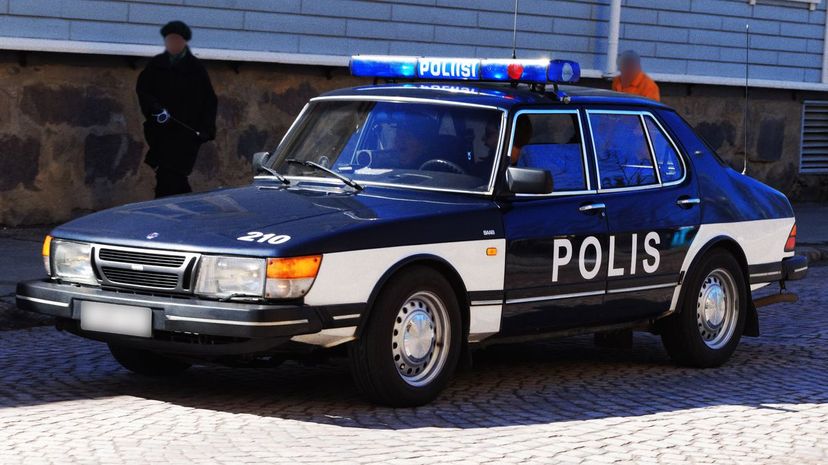
Because of the high altitude and deep snow that sometimes blanketed the area, police in Aspen, Colorado needed a vehicle well-suited for the job. When a new police chief took the job in 1973, it was decided to replace the police fleet, and they decided on Saab 900s, which both fit the bill and were cheaper because Saab wanted to use them in some advertising campaigns. Several area residents also bought Saabs.
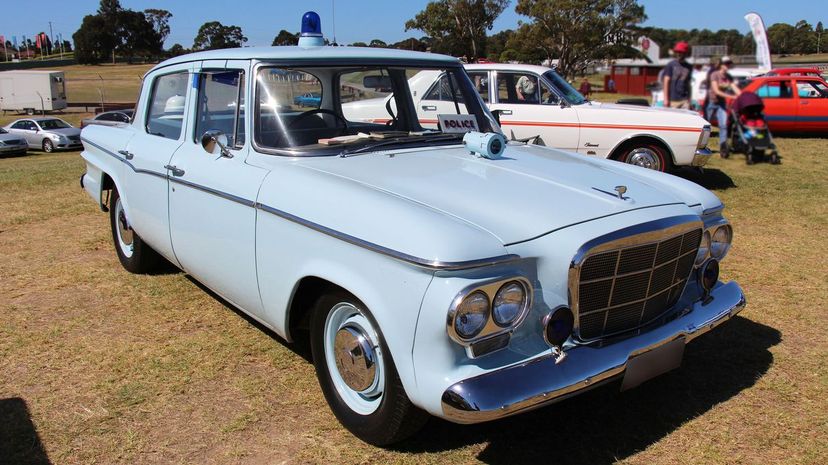
The Studebaker Lark hit the streets in 1959 and lasted for three generations, with the final car coming out in 1966. The Marshal model of the Lark's third generation was built for use by police departments, offering three body styles for various uses: "Pursuit," "Patrol" and "City."
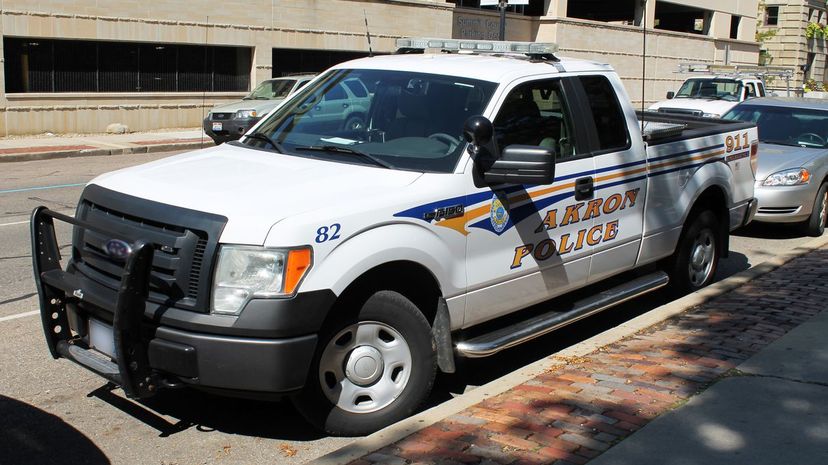
The Ford F-150 pickup has been the most popular vehicle on the roads of the United States since the 1980s, so it's only logical that many police departments would have this model in their fleets. In 2018, the F-150 Police Responder variant became the first pursuit-rated pickup truck on the market.
Advertisement
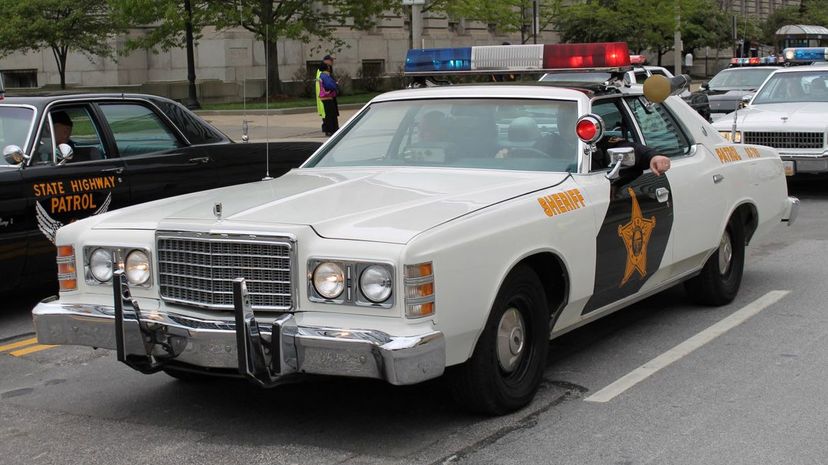
When it first hit the streets in 1965, the Ford LTD was a full-size model - there is no arguing about that. While the car had all the engine a driver could want in earlier models, emissions and fuel economy standards in the late 1970s meant that only the police variants of the LTD would have the most powerful engines.
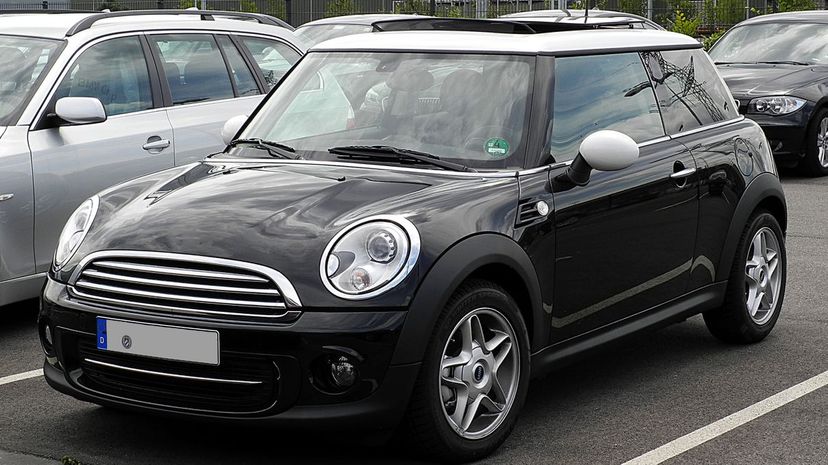
In 2011, BMW presented the police department of Woodcliff Lake, New Jersey with one of its products: a MINI Cooper with the words "Drive It Home: Don't TXT & Drive" emblazoned on the side. The vehicle was designed to present the public service message, but wasn't modified in any other way.
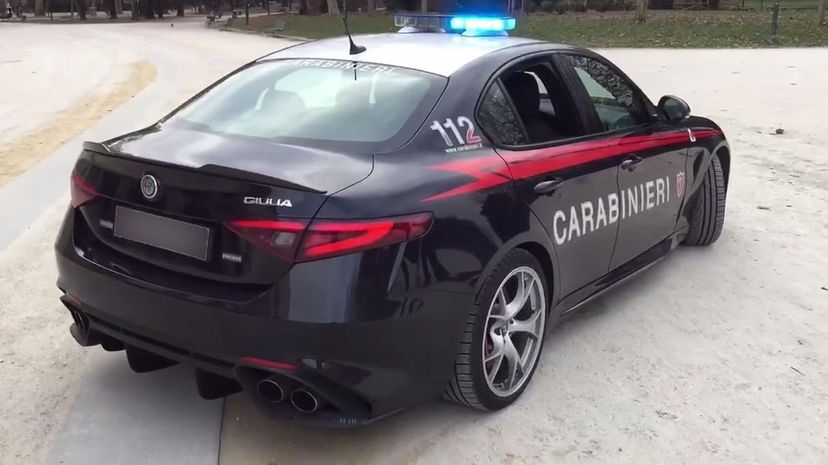
It's got the body of a sedan, but this four-door car used by the Italian Carabinieri has a monster twin-turbo V6 that can put out more than 500 horsepower, go from 0 to 100 km/h (0 to 62 mph) in 3.9 seconds and hit 190 mph. That's fast enough to catch up with almost any getaway car.
Advertisement
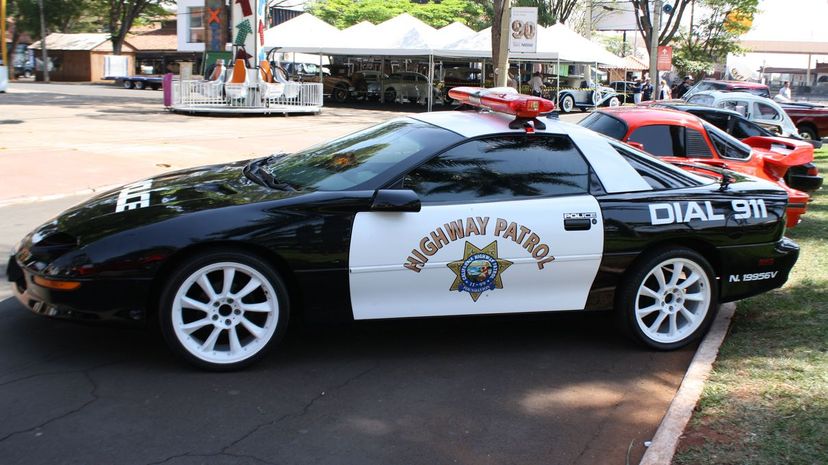
In 1991, Chevrolet developed the "B4C" package for the Camaro, designated to be used by police departments and other law enforcement agencies. The package offered the power of the high-performance Z/28 package but put it in the lower-performance RS body. Police packages have been part of the Camaro lineup ever since.
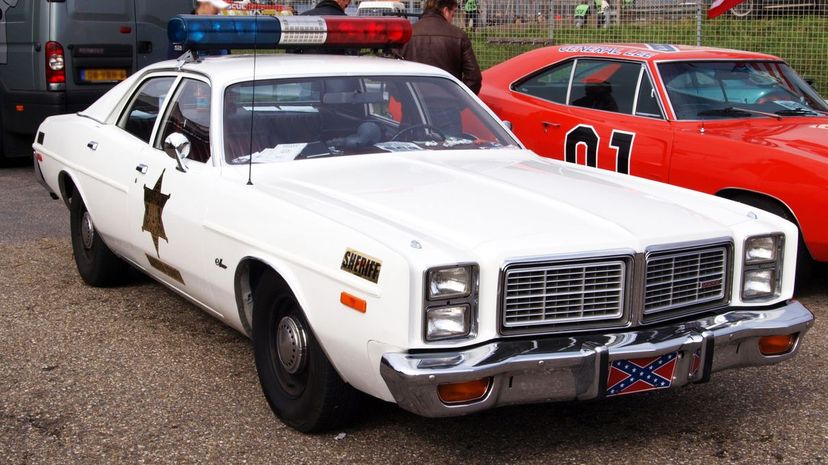
The Dodge Monaco Pursuit was a favorite of police officers across the country because it was both fast and powerful, Tested in 1977, the Monaco Pursuit earned a 0-to-60 mph time of 8.1 seconds (the Corvette of that era did it in 8 seconds). The Monaco was used by Sheriff Rosco P. Coltrane to chase down Bo and Luke Duke in TV's "The Dukes of Hazzard," and it looked the part because it was the real deal.
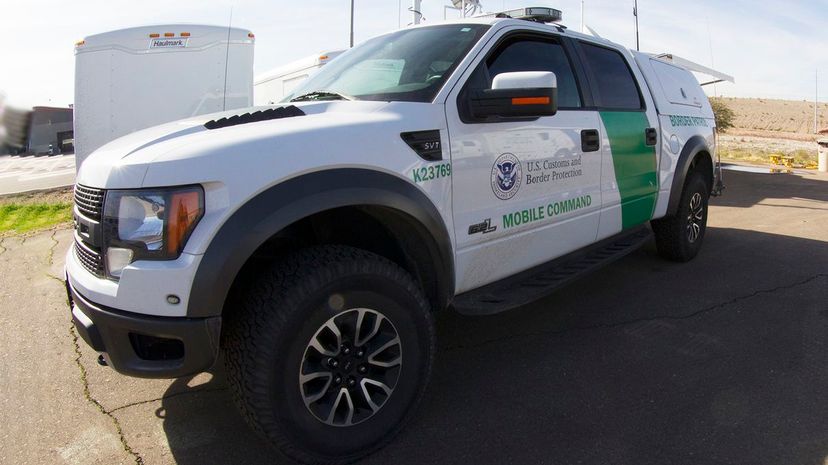
The U.S. Border Patrol needed something rugged for traveling the unpaved area along the southwestern border, and found that the SVT Raptor package of the Ford F-150 was well-suited for the extreme off-road nature of their jurisdiction.
Advertisement
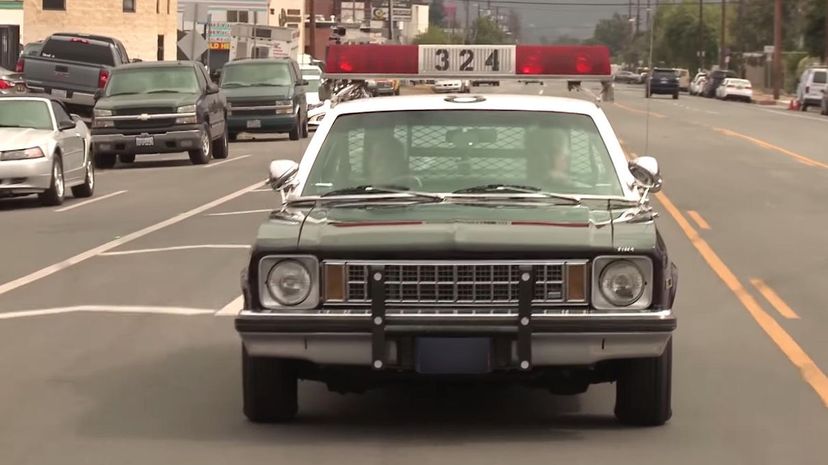
The Chevy Nova wasn't a big car, but in 1975, when Chevrolet put a V8 with 165 horsepower into the small frame and equipped it with heavy-duty brakes for better handling, it was fast, maneuverable and perfect for certain law enforcement tasks.

It's beautiful, it's green, it's powerful, and if you are speeding in the United Arab Emirates, it's the last thing you want to see in your rearview mirror. The BMW i8, used by police in Dubai, is a plug-in hybrid that gets 112 miles per gallon and, with 355 horsepower and 420 foot-pounds of torque, can go from 0 to 60 in just over four seconds. Better pull over now.
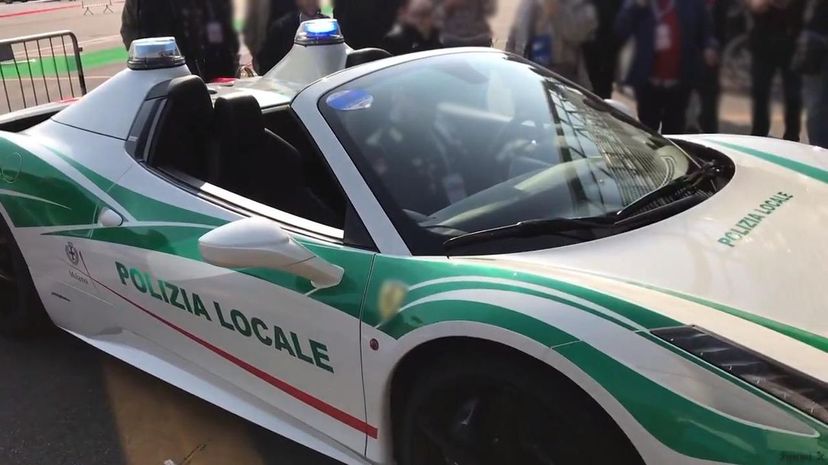
Getting arrested is bad enough; having your Ferrari 458 Spider confiscated, painted in police colors (complete with roof lights) and used as a warning to youth that crime doesn't pay is a whole other matter. When police in Milan, Italy impounded a mobster's vehicle in 2015, they "rehabbed" it for educational purposes.
Advertisement
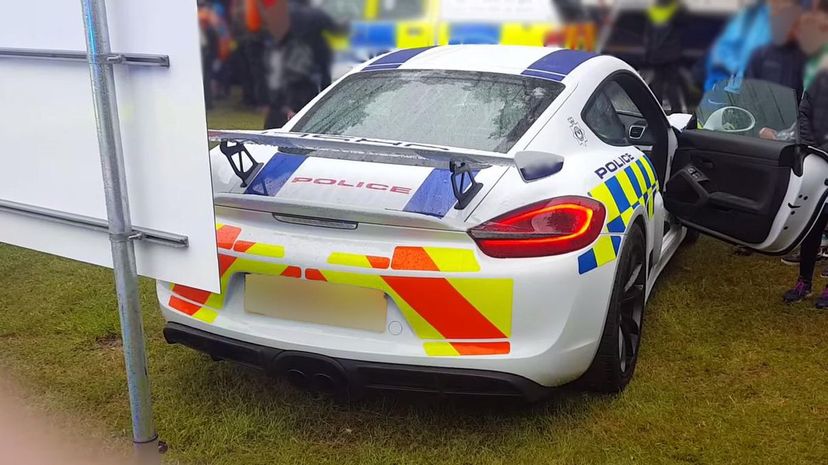
The car isn't intended to chase down those who broke the law, but instead to get conversations going. The Norfolk Constabulary in England uses a decked-out Porsche Cayman GT4 donated by the Lind Trust to get the attention of the public - especially students and other youth - as a way of starting discussions.
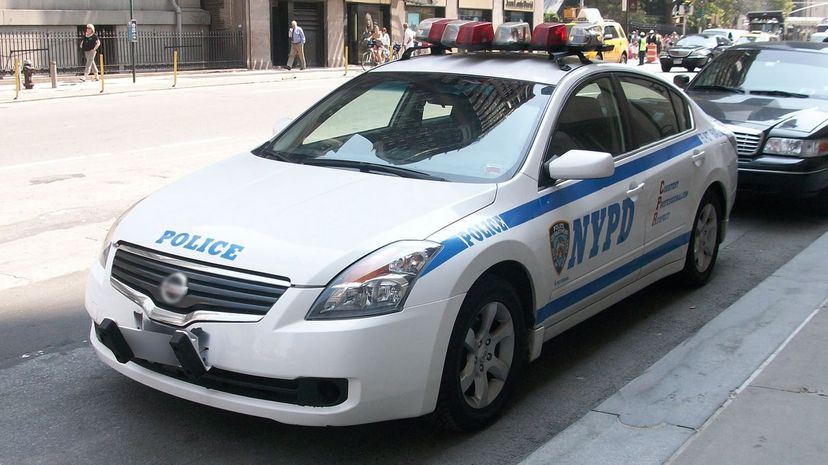
The first hybrid vehicle from Nissan, the Altima Hybrid was made from 2007 until 2011. While it never really found an audience - thus, its discontinuation - it did become a familiar sight in New York City while it was around. Not only did the NYPD use the vehicle as a police cruiser, but it was also a favorite of taxi companies.
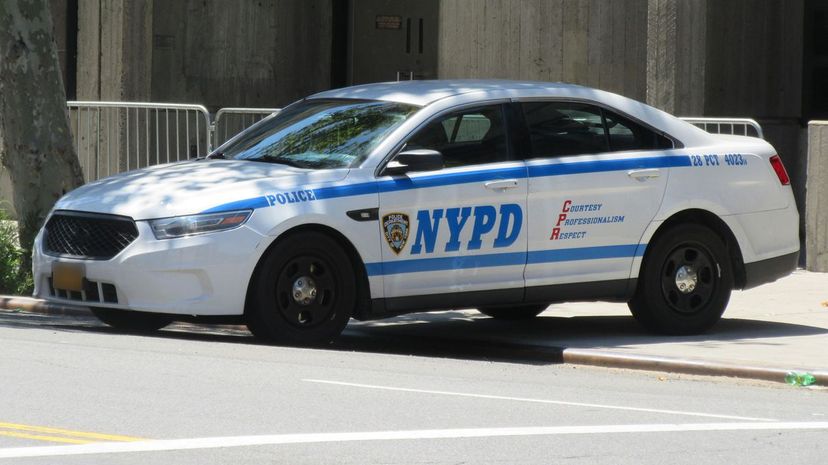
The Ford Taurus was in production for four decades, starting in 1985 and concluding its run in 2019. In 2013, the Taurus stepped up as the successor to the much-beloved police version of the Crown Victoria. The Ford Police Interceptor Sedan was part of the series' sixth generation.
Advertisement
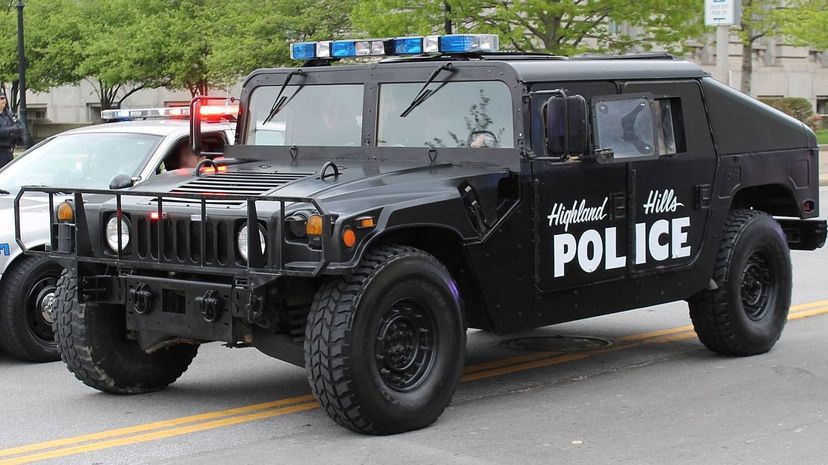
Several models of the Hummer lineup (H1, H2 and H3) have found their way onto police department motor pools, both in the United States and around the world. Special police upgrades were offered that, when added to the vehicle's already aggressive appearance, gave police an advantage in many situations.
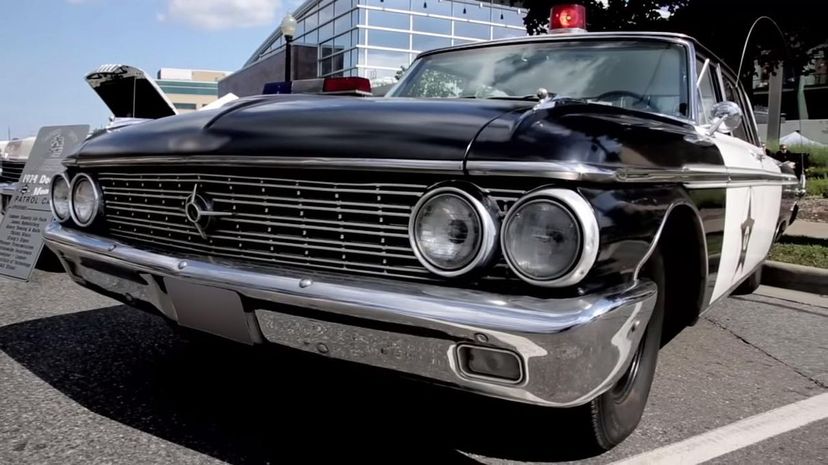
The Ford Fairlane, made between 1955 and 1970, proved to be the backbone of many law enforcement agencies around the United States. In 1957, the Fairlane got an engine upgrade that added a supercharger to a Thunderbird V8 engine, giving it the capability of generating 300 horsepower - incredible for the time and still impressive today.
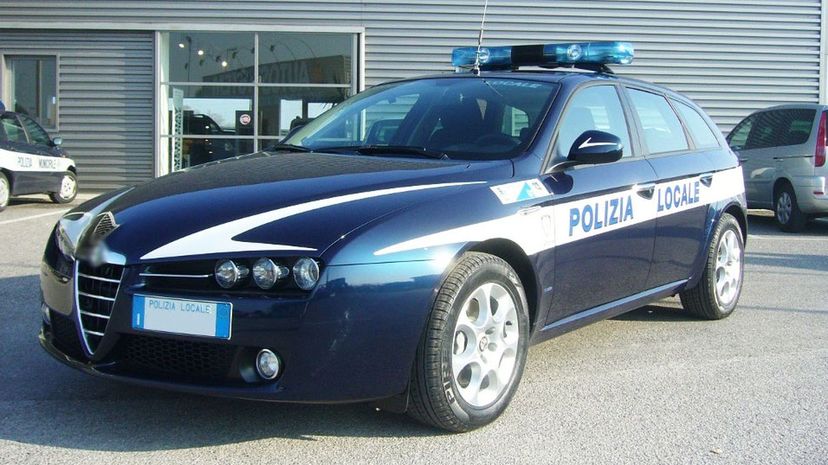
The Italian police used the 2006 model of the Alfa Romeo 159 between 2006 and 2008. The car was well-suited for law enforcement use in the city because of its V6 engine that put out 256 horsepower coupled with the car's superior handling abilities.
Advertisement
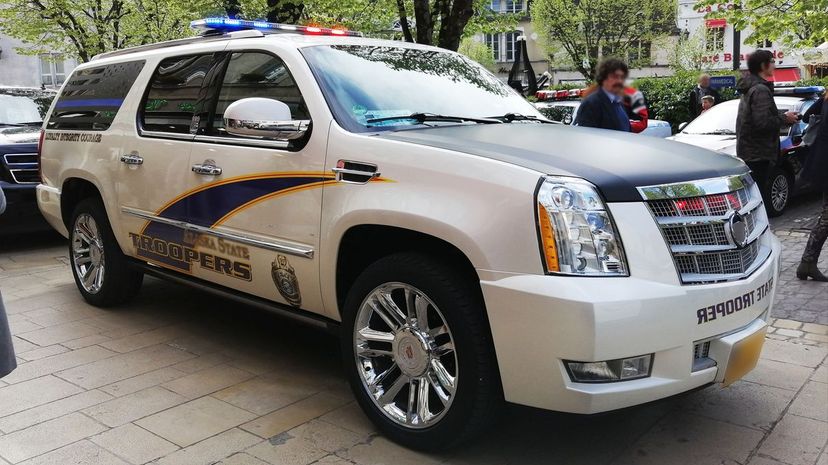
The Northern Arizona University Police Department added a touch of luxury to its fleet in 2008 after the Northern Arizona Street Crimes Task Force seized a Cadillac Escalade during a drug bust. The four-wheel-drive SUV was fully marked and equipped and served as a patrol vehicle.
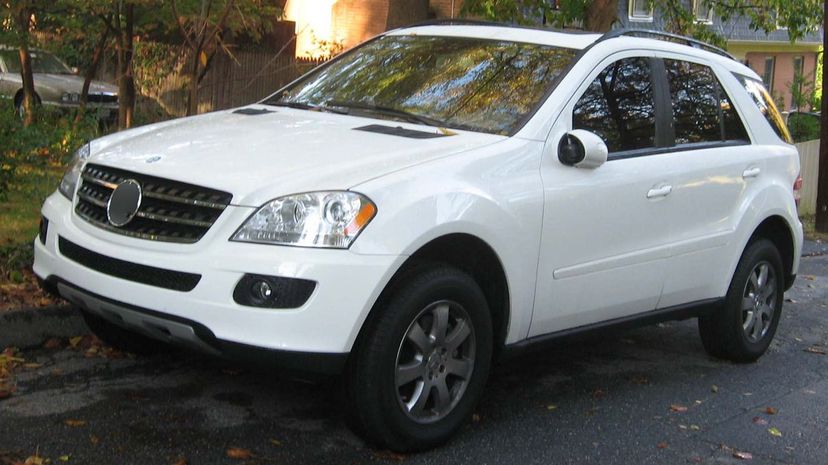
Even the school resource officers need to look sharp in Beverly Hills, California, or at least that's what Mercedes-Benz of Beverly Hills believes. The dealership loaned the vehicle for the officers' use in 2013 - the second time the dealership let them use a Mercedes vehicle.
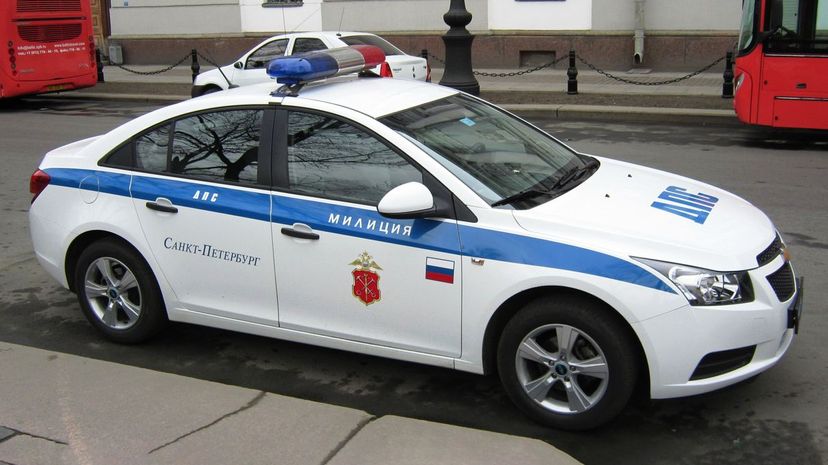
Singapore requires civilian vehicles to have speed limiters installed, but Fast Response Cars (FRCs) meant for police use have no such restrictions. There are several types of vehicles used as FRCs in Singapore. In addition to the Chevrolet Cruze, police officers also use vehicles such as the BMW F30, Hyundai Avante, Subaru Impreza, Toyota Corolla Altis and the Volvo S80.
Advertisement
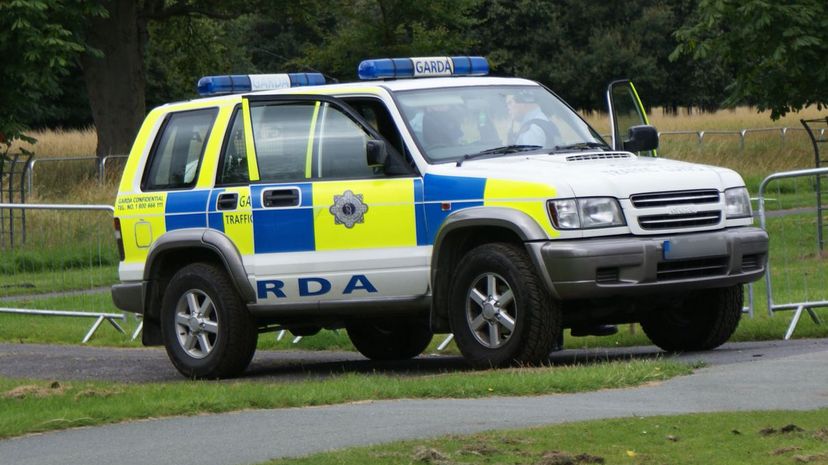
Built in two generations between 1981 and 2002, the Isuzu Trooper might not have been the powerhouse that other vehicles on the police force might have been, but it was a versatile SUV that was available in four-wheel-drive models and could go off-road as the need arose.